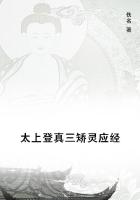Let us try to determine precisely his doctrine as to perception by the senses.Negatively: he denies, first, that we perceive by means of ideas, in the mind or out of it, coming between the mind and the material object perceived;secondly, that we {209} reach a knowledge of the external object by means of reasoning; and, thirdly, that, in order to the conception of any thing it is necessary to have some impression or idea in our minds which resembles it, particularly setting himself against the doctrine of Locke, that Our ideas of the primary qualities are resemblances of them.What he advances on these points seems to me clear, full, and satisfactory.He has done special service to philosophy by removing these confusing and trouble some intermediaries which were called <ideas>.It may be that the great body of philosophers had not drawn out for their own use such a doctrine of ideas as Reid exposes; it may be that some of them, if the question had been put to them, would have denied that they held any such doctrine; it may be, as Hamilton has tried to show, that some few held a doctrine of perception without ideas: but I believe that Reid was right in holding that mental philosophers generally did bring in an idea between the mind perceiving and the external object;that some objectified the internal thought, and confounded it with the object perceived that others created an image in the mind or in the brain and that some had not clearly settled what they meant by the term they employed.I believe he is right when he says generally, that " ideas being supposed to be a shadowy kind of beings, intermediate between the thought and the object of thought, sometimes seem to coalesce with the thought, sometimes with the object of thought, and sometimes to have a distinct existence of their own." I am sure that the discussion in which he engaged has been of great utility in compelling those philosophers who still use the word "idea" to tell us what they mean by it, and of still greater utility in leading so many to abandon the use of the phrase altogether in strictly philosophic investigations.
I am not to enter deeply into the interminable discussions as to the sense in which the word "idea" has been used by Descartes and Locke.Hamilton says that by the phrase Descartes " designated two very different things;viz., the proximate bodily antecedent and the mental consequence." ("Works," p.273.) As to the meaning which Locke attached to the term, I must content myself with referring to the discussions of Stewart, Brown, and Hamilton.After reading these with care, I am convinced that the following observations of Reid are as just as {210} they are important: " Perhaps it was unfortunate for Mr.Locke that he used the word idea so very frequently as to make it very difficult to give the attention necessary to put it always to the same meaning.And it appears evident that, in many places, be means nothing more by it but the notion or conception we have of any object of thought; that is, the act of the mind in conceiving it, and not the object conceived." But then he frequently uses it to signify " the images of external things in the mind." " There is a third sense in which he uses the word not unfrequently,-to signify objects of thought that are not in the mind, but external."" Thus we see that the word idea has three different meanings in the `Essay;' and the author seems to have used it sometimes in one, sometimes in another, without being aware of any change in the meaning.The reader slides easily into the same fallacy, that meaning occurring most readily to his mind which gives the best sense to what he reads." It is specially true of Locke what Reid affirms generally: "The way in which philosophers speak of ideas seems to imply that they are the only objects of perception " (P.263).
The service which Reid has done to philosophy by banishing these intermediaries between perception and its external object cannot be over-estimated.He has also been successful in proving that it cannot be by a process of reasoning that we reach the conception of, and belief in, the existence of body.There is nothing in any organic affection of the nerves or brain, nothing in the sensation in the mind, to entitle us to believe in an extended resisting object.He also deserves great credit for showing so clearly that the conceptions of the qualities of matter are not to be supposed to have a resemblance to the qualities themselves.Locke acknowledges as to the secondary qualities of matter that the ideas are not to be regarded as being like them; but he still talked of ideas of the primary qualities as being resemblances.This may have been little else than loose language on the part of Locke, to indicate that there was a correspondence or relation of some kind;but it was desirable to correct it, as it was fitted to convey a very erroneous impression.In a later age, Hamilton exposed thoroughly the more general error, that like can only influence like, and that like can only be known by like.It is disheartening to think how much of the energy of our greatest thinkers has {211}been spent in correcting errors which other great thinkers have introduced.It looks as if it were only by a continued struggle that truth is to gain a victory over error.















